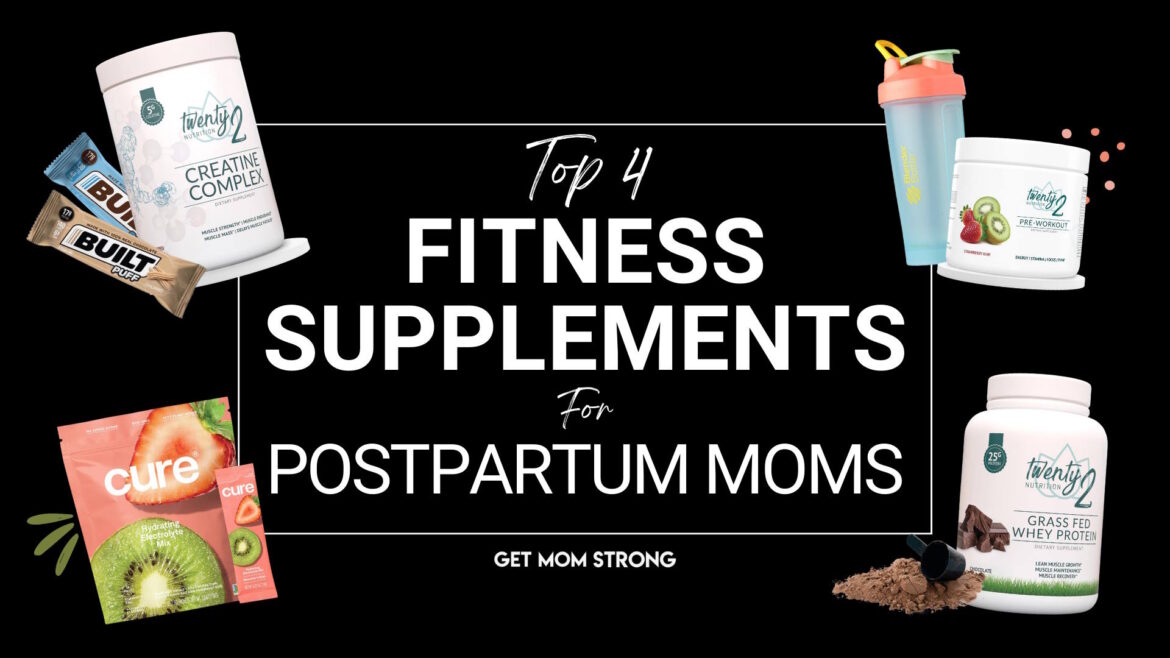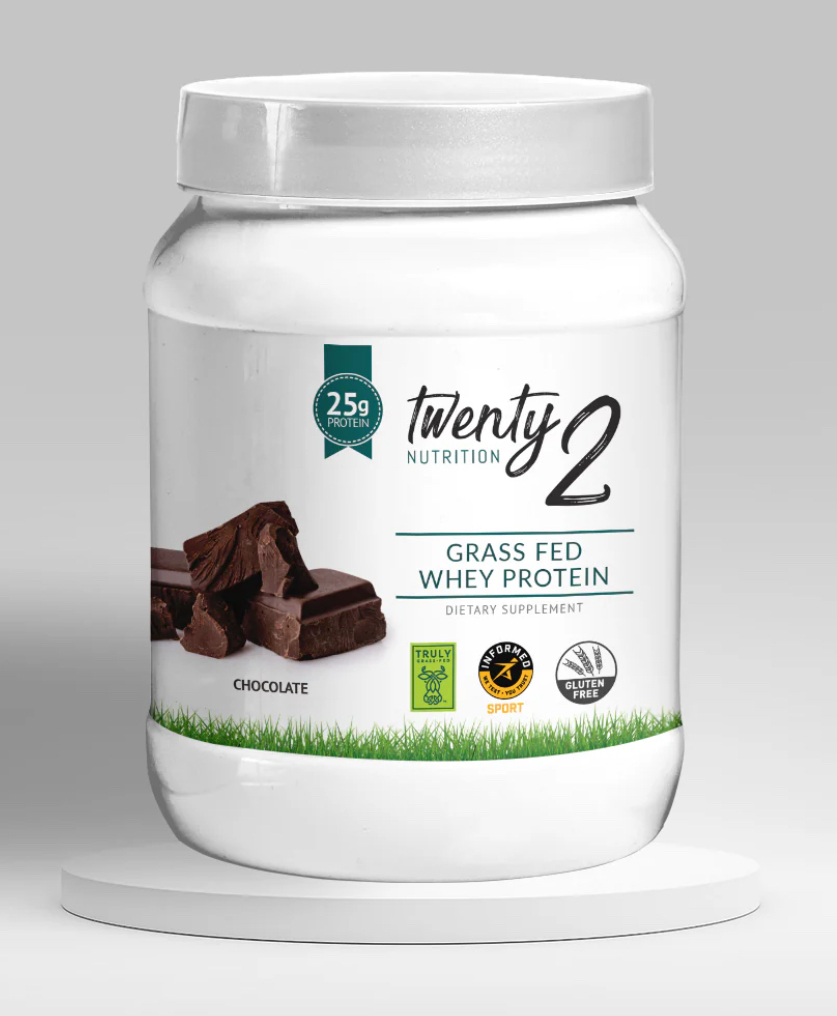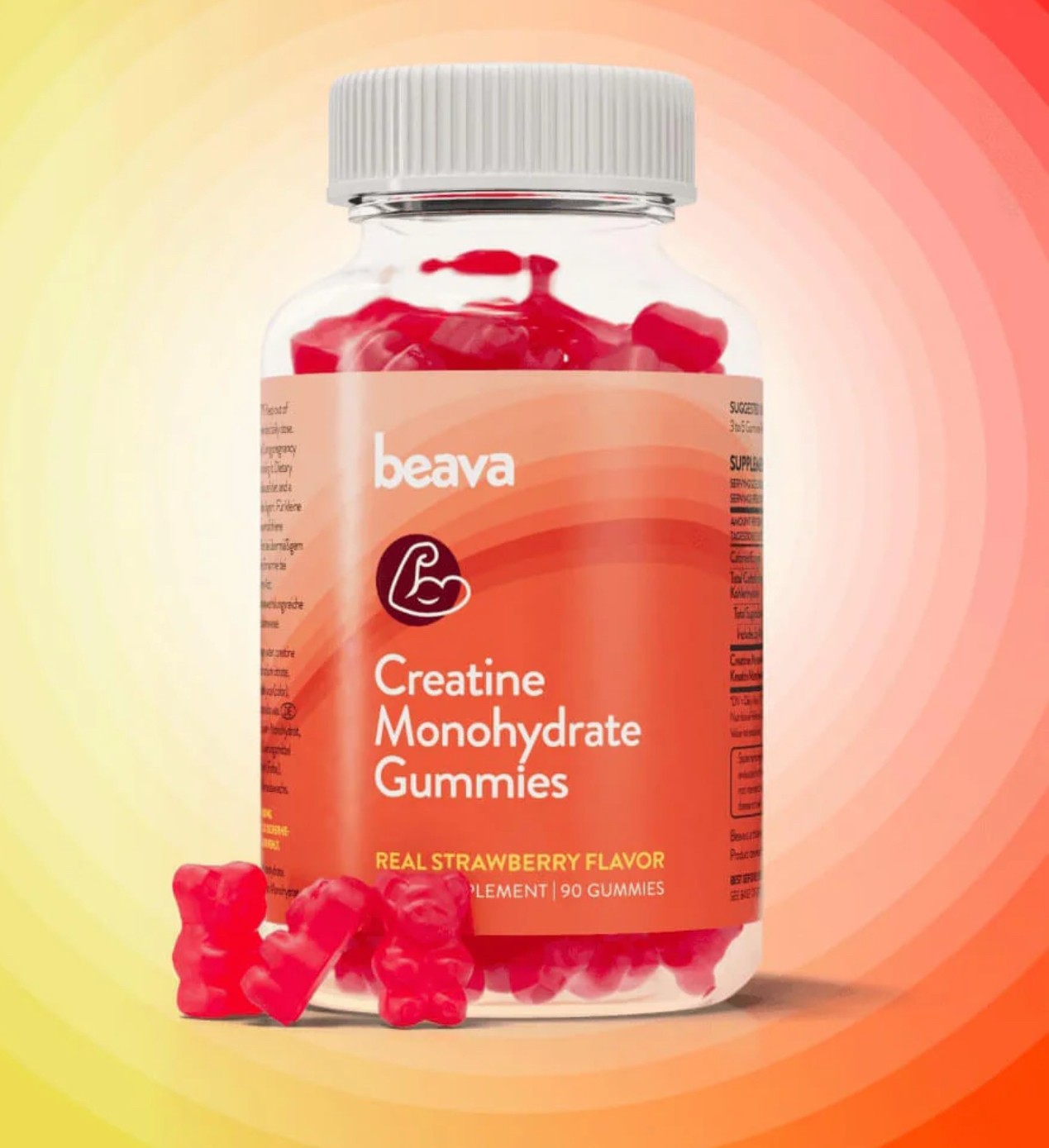The truth is, you can get most nutritional needs from whole foods. If you focus on a diet rich in protein, vegetables, fruits, complex carbohydrates and healthy fats, you probably don’t need workout supplements.
But, the reality is, mom-life makes us busy. Supplements simply make it easier to hit our nutritional needs.
So which supplements are actually worth the money? Let’s break it down.
*Please note, I make a small commission from the products linked below. I honestly would not recommend anything that I do not take myself or haven’t researched in detail.
Best Overall Supplement: Whey Protein
The most useful supplement is whey protein. Our muscles depend greatly on protein to repair and grow. Adding a serving of protein powder daily can help you meet your protein goals with more ease, balance blood sugar, and help with muscle gains.
Whey has been touted as the most beneficial for muscle building, due to the fact that it is loaded with a branched-chain amino acid called leucine. Leucine is the most growth-promoting (anabolic) of the amino acids.
Whey is also quickly digested, meaning it can get to the muscles quickly. It also has minimal lactose, making it a great option for dairy-free or lactose sensitive moms.
A great vegan option is a pea or hemp-based protein powder.
What to look for when choosing a whey protein
The most important thing, as is the case when choosing any supplement, is to look for a product with pure ingredients, and minimal added sugar.
How much should you take?
Protein powder is not a meal replacement, it is to supplement your daily food intake. One serving is typically enough to see benefits. It can be helpful to take it before or after your workout.
Is whey protein safe during pregnancy or while breastfeeding?
Consult with your physician. Generally, whey protein is noted as a safe supplement to consume while pregnant and while breastfeeding.
Ashley’s recommendation:
Twenty2 Nutrition’s whey protein packs 25g of protein per serving. It comes from grass fed whey protein isolate, and mixes easily. There are two flavors: chocolate and cookie and cream. They are releasing a strawberries and cream version soon, too!
USE CODE: ashley22
Best Supplement for Muscle Mass & Healthy Aging: Creatine
Creatine is one of the most well-studied supplements, and it is packed with benefits. It has been found to increase strength, power and muscle mass.
Creatine is particularly beneficial for women as we age, as it improve bone density, muscle mass, and even cognition.
You might notice some weight gain when taking creatine. Don’t let this deter you. It is simply water retention in the muscles.
What to look for when choosing a creatine supplement
Look for a supplement that is predominately creatine monohydrate. It is the most affordable creatine supplement and well- studied.
How much should you take?
Creatine works by building in your system. It is to be taken daily, typically at a dose of 3-5g. It takes about two weeks to before you will start to see and feel its benefits.
Is creatine safe during pregnancy or while breastfeeding?
It is complicated.
Research has yet to give a direct answer for whether or not it’s advised to supplement with creatine during pregnancy. That said, it seems that creatine supplementation is safe when pregnant and it may actually have some benefits for your baby. Of course, please consult with your doctor before taking a creatine or any supplement.
As for breastfeeding and creatine supplementation, research actually shows that it might not be a safe option. According to this study, creatine is converted into creatinine in the mother’s and infant’s bodies. It may increase the infant’s serum creatinine, which may alter estimations of the infant’s kidney function.
Ashley’s recommendation:
Beava Creatine Gummies: These make it super easy (and tasty) to get your creatine. Not in the US? This powder is very affordable and ships globally.
Use code: GETMOMSTRONG to save 20%
Best Supplement for More Energy: Caffeine and Pre-Workout
Most of us already spend our postpartum days nursing on a cold coffee like a lifeline to the living. The good news is, caffeine can actually help with workout performance.
Some people enjoy a good old fashioned cup of joe, while others like to get a boost from a pre-workout supplement.
Either way, caffeine is a great way to kick-start your body. It also has been shown to increase muscle performance.
How much should you take?
About 200 mg (or two cups of coffee) about 30-60 minutes before your workout can help give you the spike in energy you need.
Is it safe while pregnant and breastfeeding?
The American Pregnancy Organization recommends staying at or below 200 mg of caffeine daily.
According to Le Leche League International, up to 200-300 mg of caffeine, or about 2-3 cups of coffee, is considered safe to consume while breastfeeding.
Stick to good old fashioned coffee if pregnant or breastfeeding. Many pre-workout supplements some pre-workouts may contain other stimulants such as guarana, Yohimbe, or synephrine. These substances can have side effects that can increase heart rate and blood pressure.
Ashley’s recommendation:
Just drink a couple cups of coffee! Better yet, combine your whey and caffeine in this delicious smoothie.
If coffee isn’t your thing, I recommend Twenty2 Nutrition’s pre-workout. It comes in a stimulant-free version too. However, they are NOT safe while pregnant or nursing.
Best Supplements for Hydration: It Depends…
Generally speaking, hydration supplements are only needed after 60 minutes of intense exercise. That said, most of us are chronically dehydrated and hydration supplements are particularly helpful if exercising and breastfeeding to maintain supply.
Hydration supplements can be a real sugar trap though. Having a sugary drink can be okay after intense exercise, but on a more daily basis, it is best to look for a hydration supplement that is lower in sugar and free from artificial dyes.
How much should you take?
Use as needed. It truly depends on your individual hydration needs. More broadly, one serving during or after a workout is optimal.
Is it safe while pregnant and breastfeeding?
Yes, hydration supplements are generally safe while pregnant and nursing. Check with your doctor and be sure to read the supplements ingredient list.
Ashley’s recommendation:
I am a huge fan of Cure Hydration. It is created from coconut water, has minimal sugar, no dyes, and is refreshing.
USE CODE: STRONGMOM20 to save 20%.
Honorable Mention: Collagen Supplements
There is a lot of hype around collagen, especially in the postpartum healing space. The claim is that collagen helps to repair connective tissue, and improves skin, hair and nails.
There are a few studies that suggest it helps improve skin, but overall, it is still widely debated.
In my opinion, it falls into the “it can’t hurt” category of supplements.
It is quite safe while pregnant and breastfeeding and at the very least–it adds in a little extra protein.
Ashley’s recommendation:
Built Bars Puffs taste like a candy bars and pack 17g of protein, much of which is derived from collagen.
USE CODE: MOMSTRONG10.
As for powdered supplements, I read so many reviews, and personally landed on this collagen powder.
The Final Word
The truth is, you don’t have to take supplements, but they can make life easier. If they aren’t in your budget, please don’t be discouraged. You can make plenty of gains even without supplements.
Check out SLAM Nutrition for detailed nutrition tips, plus 150+ recipes.




